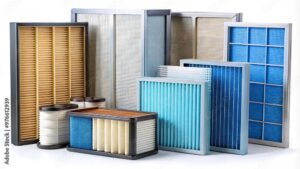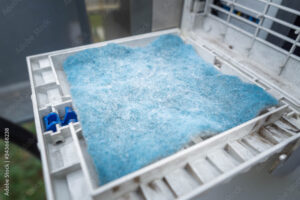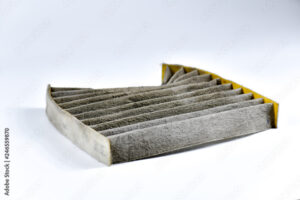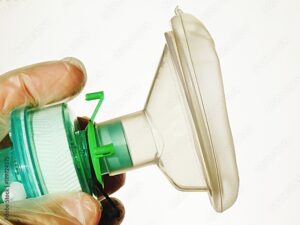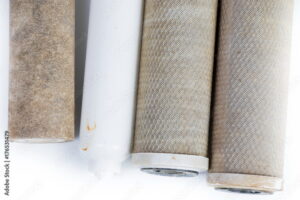The air we breathe indoors has a significant impact on our health, productivity, and overall quality of life. Whether you’re a homeowner focused on comfort, a health-conscious individual concerned about air quality, or an allergy sufferer seeking relief, choosing the right air filter for your home can make all the difference. But with so many types of indoor air filters available, where do you start? This guide breaks down the pros and cons of the most common air filters, giving you clarity on what fits your needs best.
For Tons of Great Free Information please hit “Like & Subscribe”
Websiteconstructionconsumeradvocacyinstitute.com
www.youtube.com/@ConstructionConsumerAdvocacy
Why Air Filters Matter
Indoor air can be 2-5 times more polluted than the air outside. From dust and allergens to mold spores and pet dander, the particles lingering in your home can irritate allergies, worsen asthma, and even affect long-term respiratory health. Air filters are the first line of defense, trapping these pollutants and improving the air quality in your home.
Types of Indoor Air Filters
1. Fiberglass Air Filters
Fiberglass filters are some of the most commonly used types, partly because they are budget-friendly and easy to find. These disposable filters consist of multiple layers of fiberglass mesh.
Pros:
- Very affordable.
- Accessible in most hardware stores.
- Provides basic filtration by capturing larger particles like dust and debris.
Cons:
- Not effective for capturing smaller particles like pollen, mold, or pet dander.
- Requires frequent replacement (about every 30 days).
- Not ideal for allergy or asthma sufferers.
Best For: Budget-conscious homeowners who want minimal air filtration.
2. Pleated Air Filters
Pleated filters are made with polyester or cotton folds, providing a greater surface area to trap particles, and are one of the most popular choices for homeowners.
Pros:
- Widely available and affordable.
- Filters smaller particles effectively, such as pollen, mold spores, and pet dander.
- Comes in various efficiency levels, making them suitable for standard to high-performance HVAC systems.
Cons:
- Slightly pricier than fiberglass filters.
- Can restrict airflow if not replaced regularly.
Best For: Homeowners seeking a balance of affordability and good filtration to improve indoor air quality.
3. High-Efficiency Particulate Air (HEPA) Filters
HEPA filters are the gold standard for air filtration. They remove up to 99.97% of airborne particles as small as 0.3 microns, making them incredibly effective at filtering harmful contaminants.
Pros:
- Extremely effective at removing allergens, mold spores, bacteria, and even some viruses.
- Recommended for those with severe allergies or respiratory conditions.
- Long-lasting and reliable with proper maintenance.
Cons:
- Generally not compatible with most home HVAC systems (often used in standalone purifiers).
- Higher upfront cost compared to other filters.
- May require professional installation.
Best For: Allergy sufferers, asthma patients, and anyone committed to having the cleanest air possible.
4. Electrostatic Filters
These reusable filters use static electricity to trap particles, which makes them an eco-friendlier option than disposable filters.
Pros:
- Economical over time as they’re washable and reusable.
- Filters both large and fine particles effectively.
- Reduces waste by eliminating disposable filter replacements.
Cons:
- Requires consistent cleaning every 1-3 months to maintain effectiveness.
- May not filter as thoroughly as HEPA or higher MERV-rated filters.
Best For: Budget-conscious and eco-minded homeowners who don’t mind a little maintenance.
5. Activated Carbon Filters
These filters contain activated carbon, which absorbs and neutralizes odors, gases, and chemicals from the air.
Pros:
- Great at removing odors from cooking, pets, or smoke.
- Filters harmful gases and volatile organic compounds (VOCs).
Cons:
- Often used alongside other filters, as they’re not as effective at removing allergens and small particles.
- May need to be replaced more frequently, depending on usage.
Best For: Health-conscious individuals concerned about air odors and pollutants like VOCs.
6. Ultraviolet (UV) Light Filters 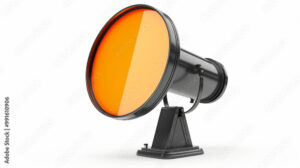
UV light filters are used to eliminate airborne biological particles like bacteria, viruses, and mold spores, rather than traditional dust and allergens. These are most commonly added to HVAC systems as supplemental filters.
Pros:
- Highly effective at neutralizing microorganisms.
- Ideal for improving overall system hygiene (like stopping mold from growing in damp ducts).
Cons:
- Doesn’t trap dust, allergens, or smoke particles; must be paired with another filter type.
- Requires professional installation and maintenance.
Best For: Supplementing other filters in homes where sterilization of microorganisms is a priority.
Choosing the Right Filter for Your Home
When deciding on an air filter, consider your specific needs:
- For Allergy and Asthma Sufferers – HEPA filters offer the most effective protection.
- For Budget-Friendly Maintenance – Fiberglass or pleated filters are appropriate for general use.
- For Odor Control – Activated carbon filters can neutralize odors and VOCs effectively.
- For Eco-Conscious Choices – Electrostatic filters provide reusability and waste reduction.
- For Eliminating Germs – UV light filters make a great addition to existing filtration systems.
Additionally, check the filter’s MERV (Minimum Efficiency Reporting Value) rating to determine its efficiency. Filters rated 8-13 are great for average home use, while ratings 14+ are needed for high-performance filtration.
Final Thoughts
No matter which type of filter you choose, regular maintenance is crucial. Replace or clean your filters as required to ensure maximum performance and to keep your indoor air clean. The right filter can improve your quality of life by keeping allergens, odors, and harmful particles out of your home.
Still unsure which filter is right for you? Consult your HVAC technician or shop around based on your specific challenges. Clean air is not just a luxury—it’s a necessity. Investing in the right indoor air filter can help you breathe easier and live healthier.


